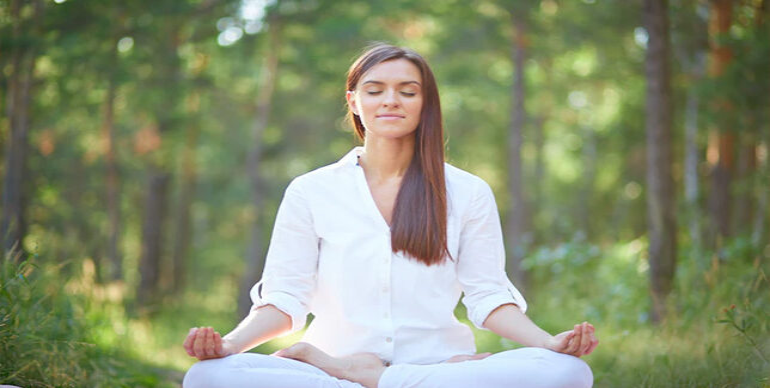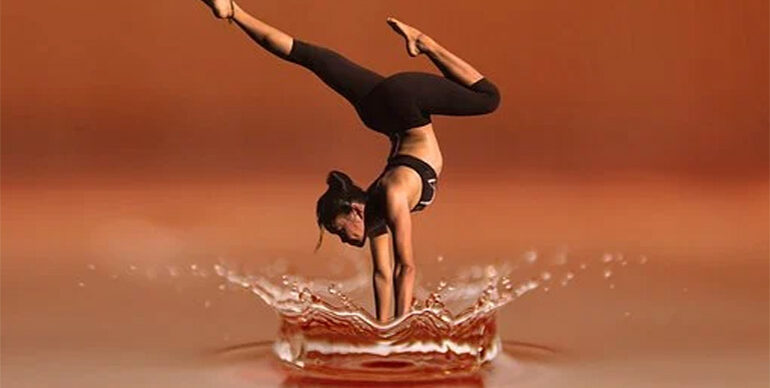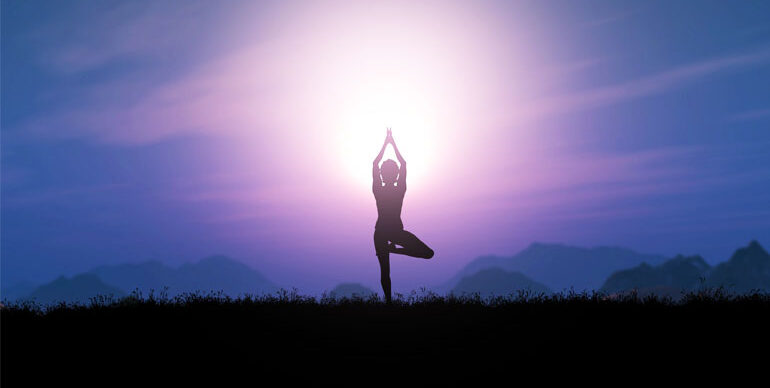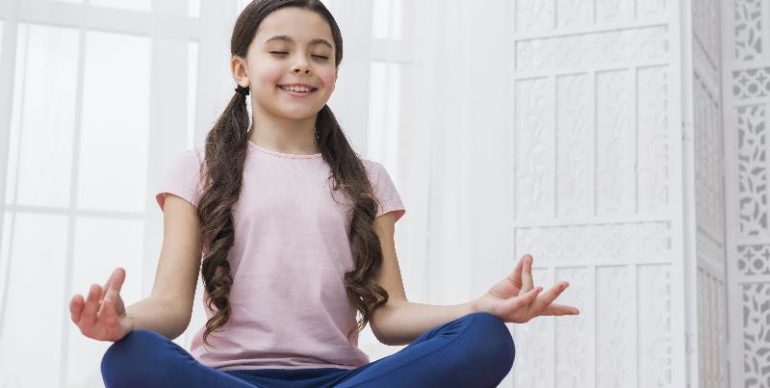
You should approach your practise of Yoga with an open and positive attitude. If you have just started practising Yoga or are planning to start soon, you must set reasonable goals that are well within your reach without pushing yourself too hard. Yoga is all about doing the best within your limitations and capacities and accepting who you are. You can also try to keep a yoga journal to record your personal growth in your journey of yoga practise. Besides jotting down your developments in your body and thoughts you can also write about your thoughts and feelings as you mature as a yoga practitioner.
What is the Right Time to Practise
You must always practise yoga at a timing that is most convenient for you and you are at your relaxed best. If you practise at your most convenient hour then it will help you maintain a regular schedule. It is better to practise for a short period atleast thrice a week rather than practise a marathon session once in a while. Although most yoga practise lasts between 45 – 90 minutes, there may be days when you may not be able to fit in a full session. In such cases, even 15 minutes of practise can do you a world of good. Just a few minutes of yoga can have lasting positive benefits for you and it’s invigorating effects will last with you for hours after even a short session.
Can I Eat Before Practise
It is best to practise Yoga on an empty stomach such as the time before breakfast or dinner. If you have just had a meal, it is a good idea to wait for 2 – 3 hours before practise. Also keep in mind that the period of time between a meal and yoga practise also depends on how heavy the meal was. Generally the heavier the meal the longer you must wait. It is also important for a yoga practitioner to avoid stimulants such as smoking or drinking alcohol or caffeine before a yoga practice session.
Making Your Practice Enjoyable
You will be able to continue practising yoga for a long time if you can make the experience enjoyable. In order for that to happen, you will have to stop viewing Yoga as a competitive practise and instead try and perform the poses the best you can within your current physical limitations. If you have a good yoga instructor, then she will ensure that variety is added to your routines every now and then to prevent boredom. When you start to practice, remember to start with those poses that you enjoy the most and the ones that you feel offer you the most benefit. Initially you can start off doing three of four asanas and then gradually adjust and increase your practise to suit your needs and moods.
Balancing Your Practice
You should ensure that your total overall practise is balanced. If you are practising under the instruction of a personal yoga trainer then she will ensure that all three movements of the spine namely forward bends, back bends and twists are included in your daily practice. Also important is the inclusion of shoulder and hip movements in your sessions.
We get a lot of inquiries from people who want to hire the services of a yoga teacher to teach them either in private or group sessions. Whether you hire the services a yoga teacher either from us or from other fitness agencies, it pays to get some basic questions answered such as the one below which can help one make informed and intelligent decisions before hiring a yoga trainer.
Listening to Your Body
Always make it a point to spend a few minutes to breath and centyer yourself before you start practicing yoga. Make it a point to go within and listen deeply to your body. Don;t push yourself into a pose that fill make you feel pain or cause discomfort. Move in and out of your poses slowly so that you feel relaxed and comfortable at all times. Each pose that you do can be considered as a journey made up of 3 parts – coming into the pose, holding the pose and coming out of the pose. All 3 parts of a yoga pose are equally important and you must pay attention to each while practising. Always end each practise with a relaxation pose such as Shavasana. This relaxation time will help you to fully absorb and integrate the benefits of your yoga practise.
What Yoga Training does the Yoga teacher have?
Yoga teachers are certified by certain schools of yoga where the training can vary from one week to a few years! All serious yoga trainers must have at least 500 hours of TTC (Teacher Training Course) behind them and many hundreds of hours of practice. Always ask for more details from the trainer about the institute from where he / she has been certified from. There are lots of money-making hack yoga studios in Indian cities situated in run down shopping malls, seedy shops and even 1 room apartments in Indian cities who dole out Yoga Teacher Training certificates for a fee. The quality of yoga instruction imparted by such organizations is obviously suspect and the teacher training certification from such places amounts to nothing. If anything, learning yoga under such Yoga teachers can be detrimental and even dangerous. As always it pays to always do some research before hiring someone who is going to be responsible for your future health and well being!
What yoga experience do you have?
There may be cases especially in India, where a yoga teacher or Yoga Guru (was BKS Iyengar certified?!!) may not be certified but may have many valuable years of teaching experience and has devoted his / her whole life to the practice and mastery of Yoga. Such people though hard to find may be very good for an advanced yoga student but of little value to a beginner.
Can the Yoga Teacher Communicate Well?
If you want to grow as a Yoga practitioner it is important that you feel comfortable communicating with your yoga trainer in the language that you are most comfortable with. Also if the trainer cannot communicate to you about the intricacies and the process of yogasanas and why you are doing what you are doing, then your grasp over the practise of yoga will not proceed as fast as you would like it to. Also it can be dangerous for you if the trainer is saying one thing and by miscommunication you end up doing something else thereby causing an injury! For this reason if you are most comfortable speaking in English, ask for a Yoga Teacher who can speak fluently in English. Any compromise in this aspect will only lessen the enjoyment and personal growth in your yoga journey.
Do not miss a single article!
Submit your email id to get new articles directly into your email inbox!
- Zumba Dance Fitness at Byjus - February 25, 2020
- History of Corporate Wellness Programs - February 18, 2020
- Yoga at a Conference - December 11, 2019




Add Review